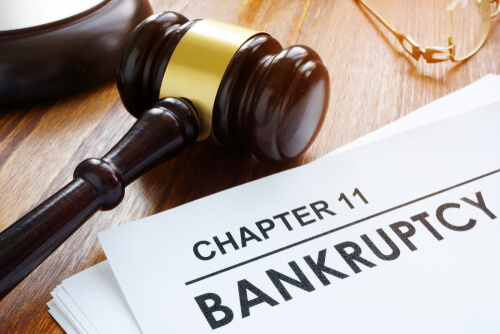With all the economic uncertainties, business disruptions, and massive layoffs happening right now, it’s common for businesses, corporations, and individuals to seek a solution for existing debt and a sudden lack of income. The full scope of COVID-19’s impact is not yet clear, but extensive quarantines, social distancing practices, and business closures have already hugely impacted bank accounts, financial markets, and economies worldwide. There are many advantages to a Chapter 11 bankruptcy and filing should be something struggling companies should consider exercising in order to keep employees, preserve the value of their business, and potentially avoid shuttering for good.
What Does Chapter 11 Do for Existing Debt Payments?
Chapter 11 bankruptcy is a way for a debtor to reorganize their assets, debts, and business operations. A reorganization bankruptcy allows businesses and others in debt an automatic stay under Bankruptcy Code section 362. Creditors may no longer initiate or continue litigation efforts for judgments, begin or continue debt collection including repossession efforts, enforce liens and pursue foreclosure among other activities. This allows filers the chance to stretch out certain creditor payments for a time so they can become more financially stable once again.
Maintaining Equity Interests
Business owners filing Chapter 11 may also be able to keep a large part or all of their equity interests in their business and keep operating the business while a reorganization plan comes together and through its confirmation.
Protection from Unsecured Creditors
Under Section 365 of the Bankruptcy Code, the entity filing Chapter 11 may reject agreements, assume contracts, and assign contracts subject to outstanding defaults being cured. This means that any counterpart to these agreements may be left as an unsecured creditor.
Financing Options
Debtor in Possession financing – potentially available to companies in crisis – may be an appealing option to help bail out flailing businesses. Lenders offering DIP financing are both incentivized and protected under Chapter 11 to enter into these agreements. It is common to see both desirable interest rates offered as well as giving the lender super-priority to seek payments from the bankruptcy before almost all other creditors in an effort to motivate this type of financial help being given.
Appealing Asset Liquidation Conditions
The United States Bankruptcy Code also grants debtors the ability in a Chapter 11 to sell assets without the transfers being burdened with liabilities such as liens, encumbrances, and claims. This provides a chance to sell assets that otherwise might not be transferrable or appealing due to the burdens that come with them. Not only may this help a distressed company, it offers reassurance of safety from successor liability claims for buyers and may incentivize them to make a purchase they otherwise would not.
New York Chapter 11 Bankruptcy LawyerWhen faced with financial hardship and uncertainty about the future, it’s important for business owners to be aware of and consider the options available to them under Chapter 11. Not only can the move allow businesses and corporations to continue operating to the benefit of their clients and their employees, it can potentially allow businesses that depend of their payments of debts owed to avoid financial crisis and a bankruptcy filing of their own. If you have questions about your options or want to plan for your financial future, speak with the New York bankruptcy lawyers at MOWK Law sooner rather than later. Contact us today with your questions to get started.

